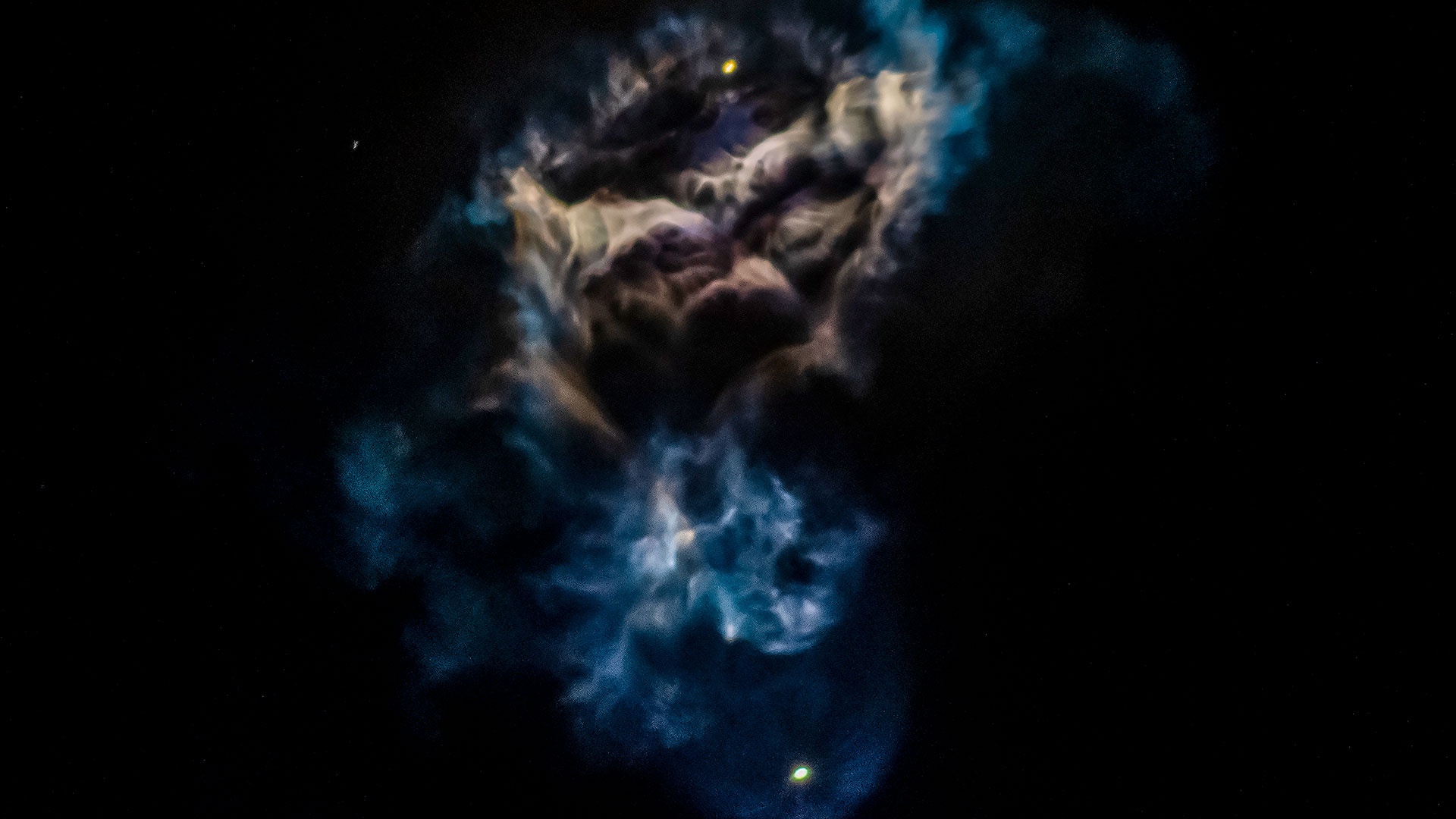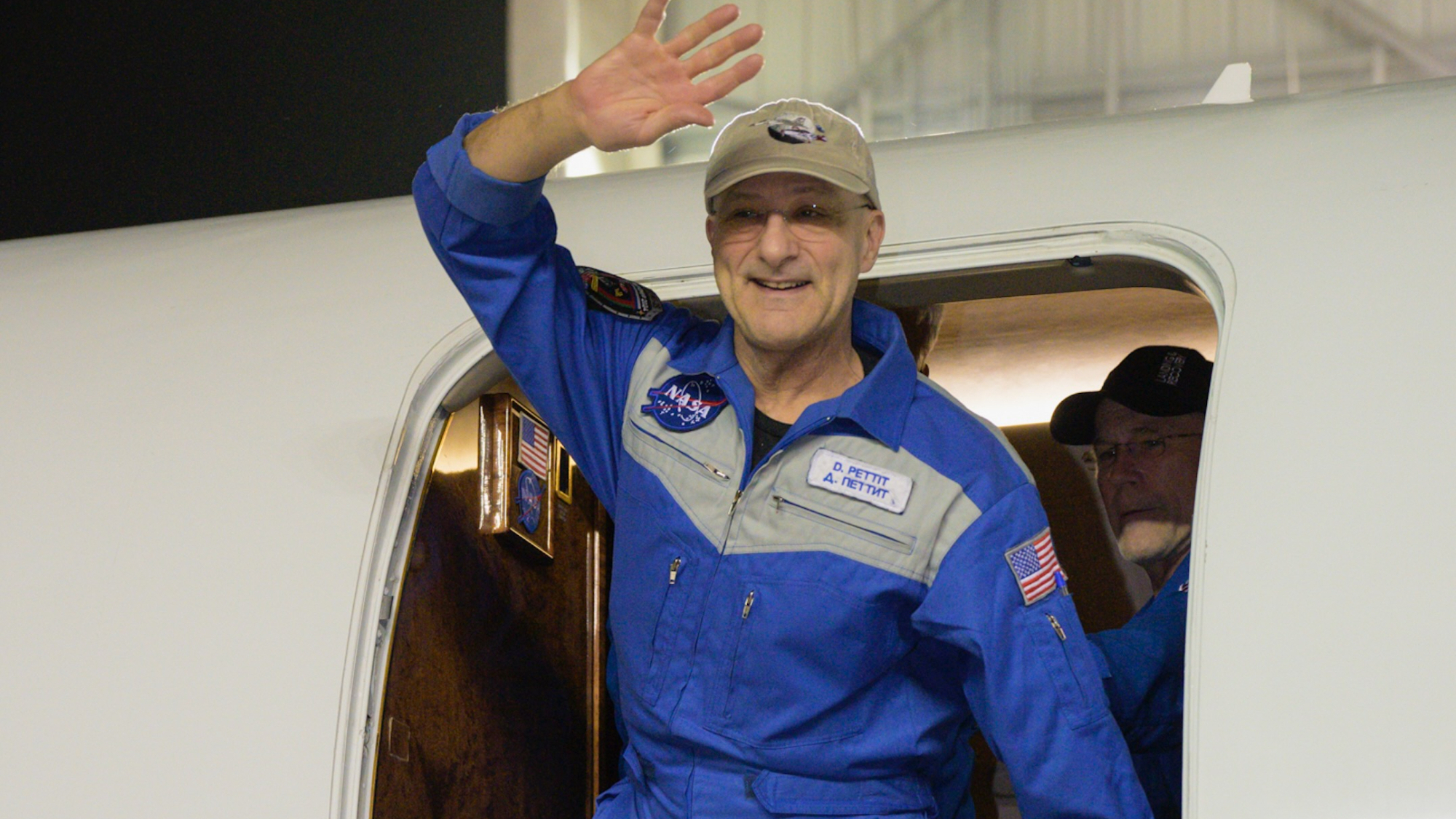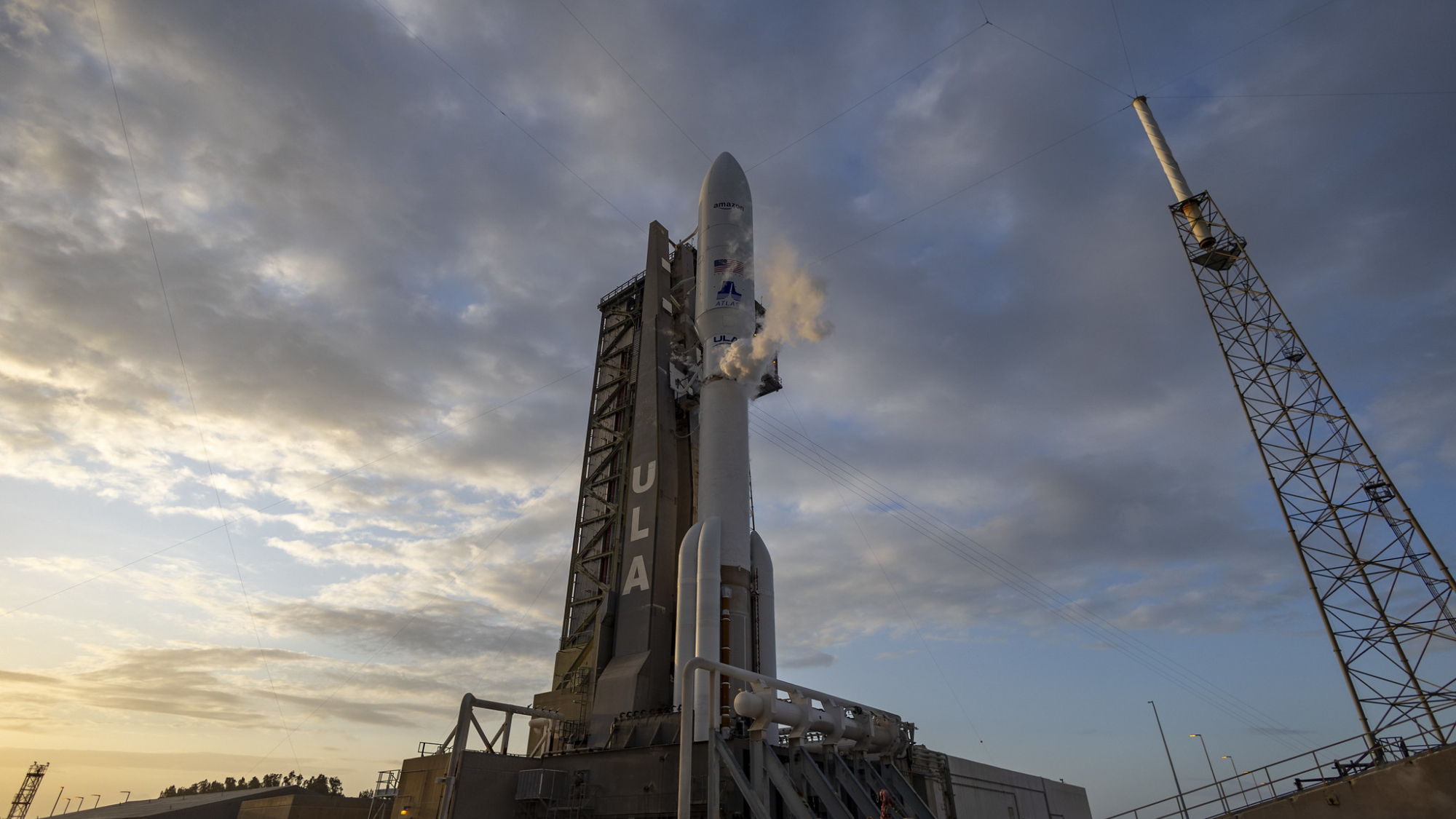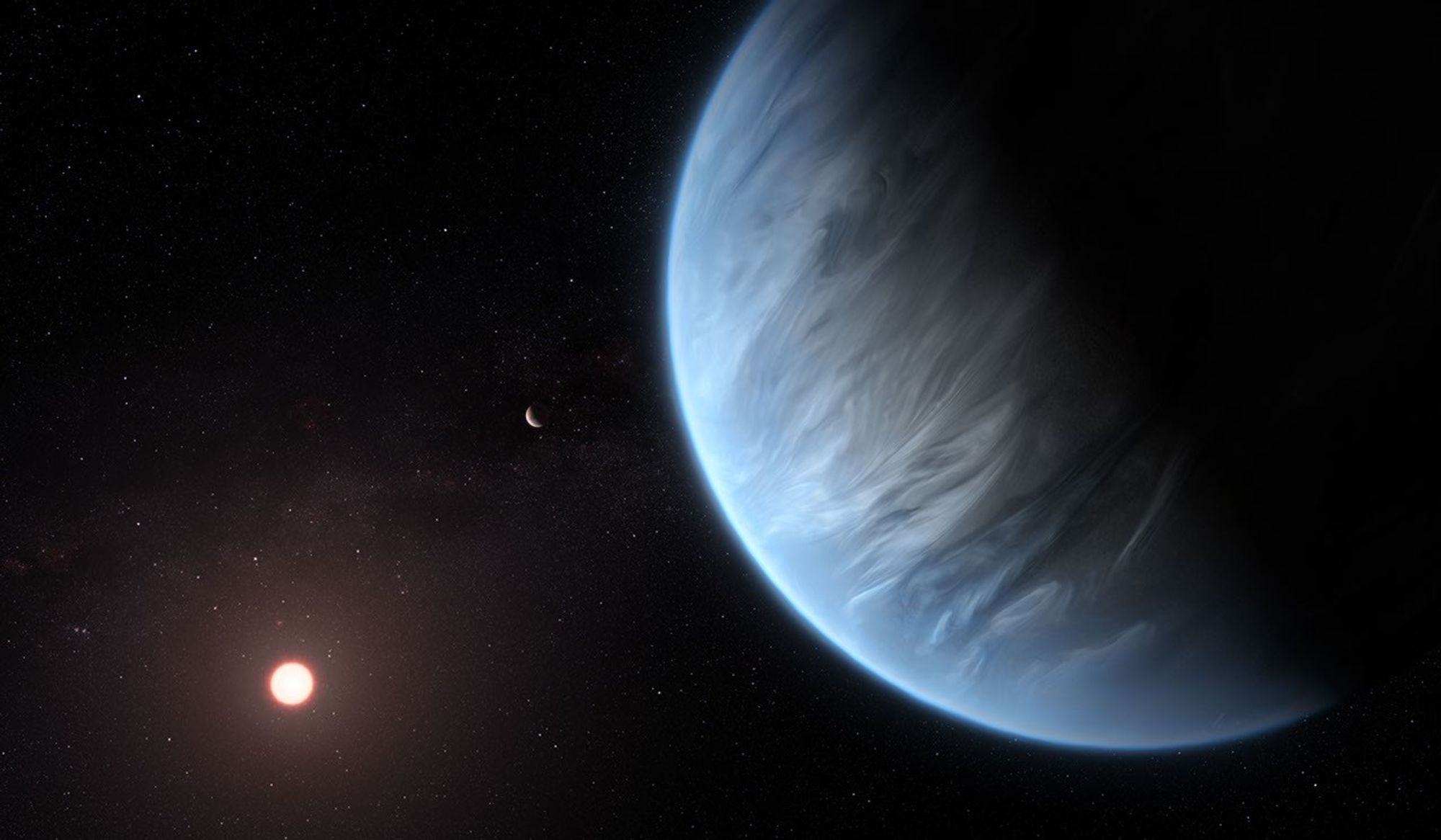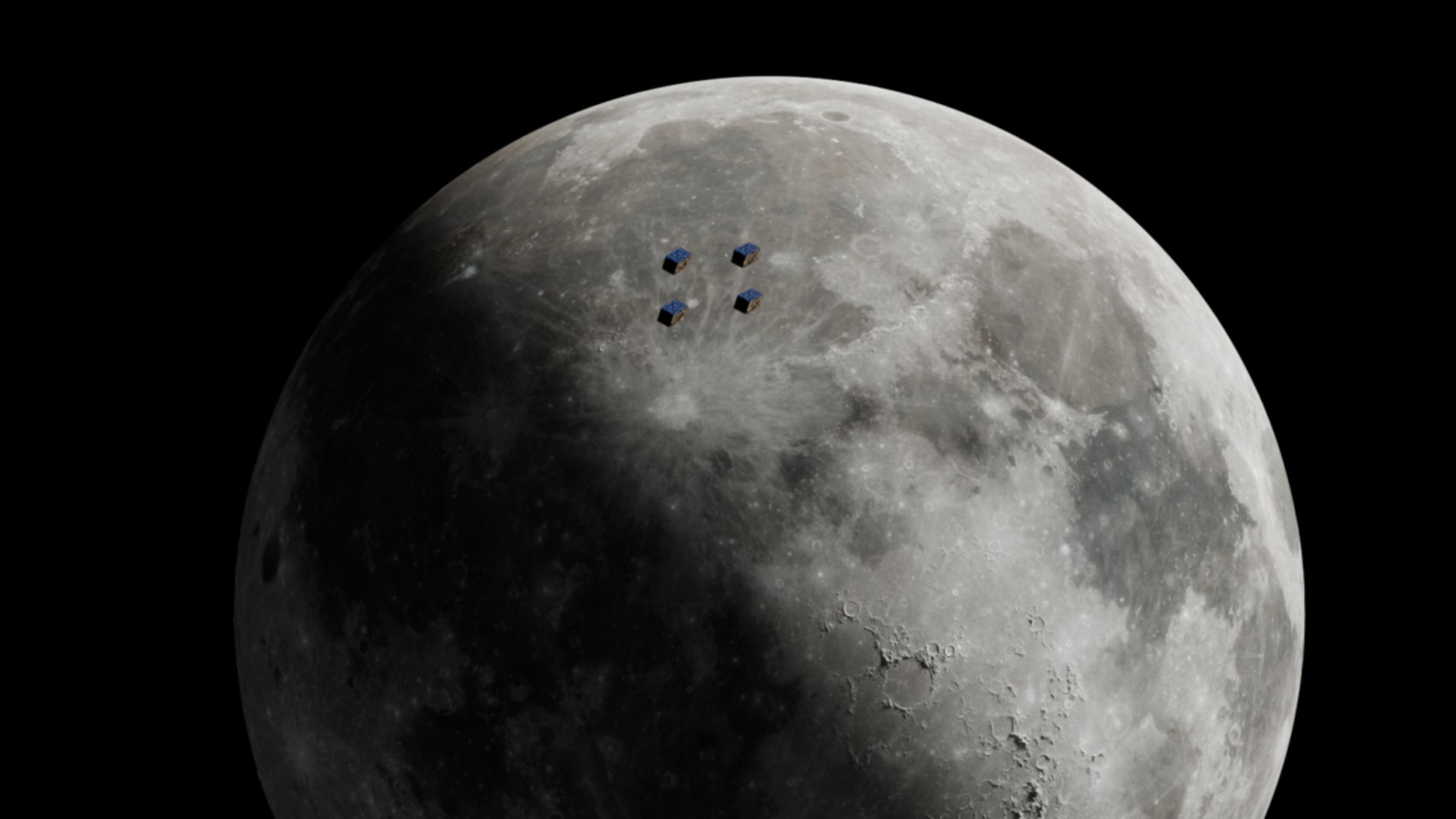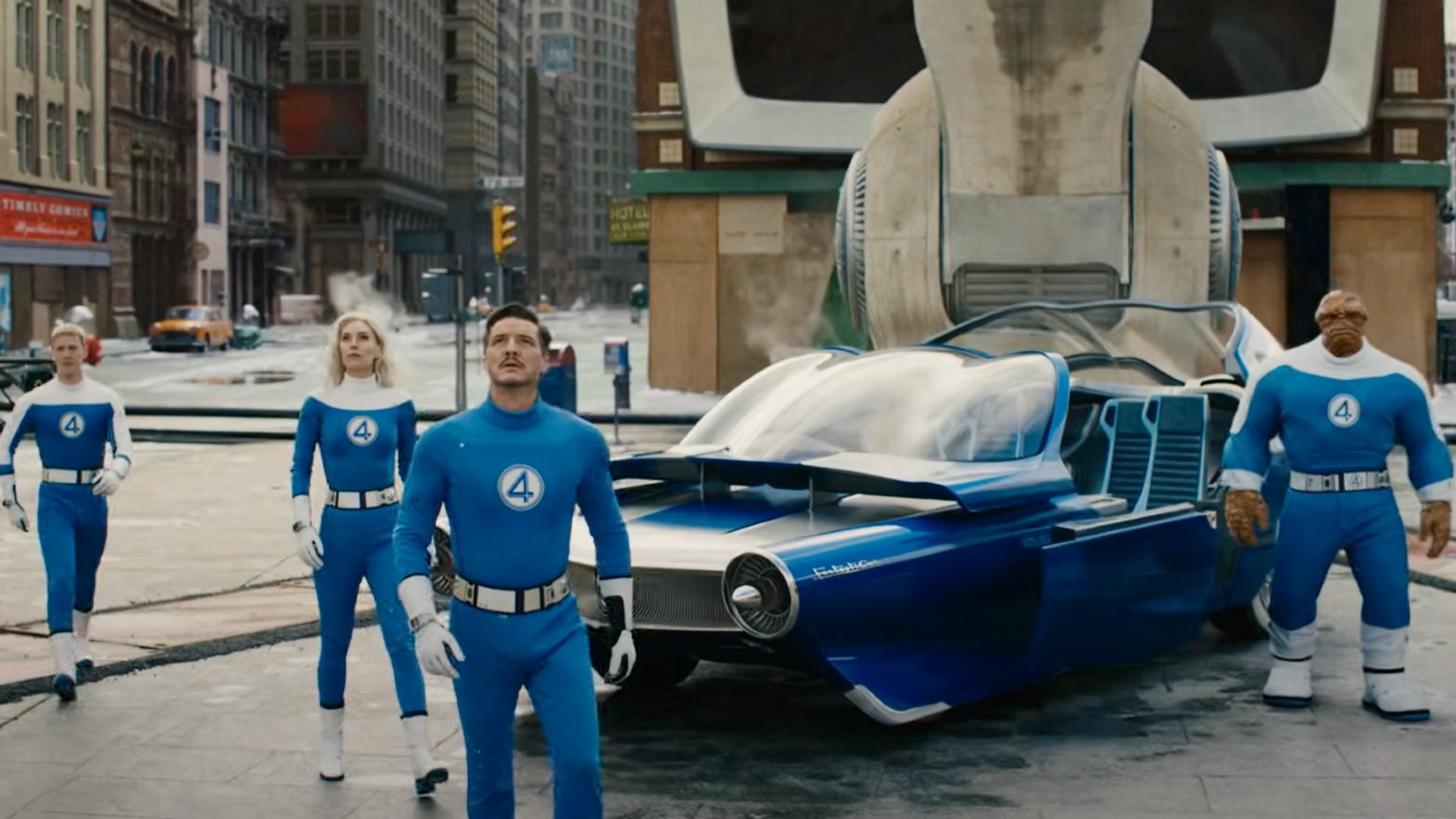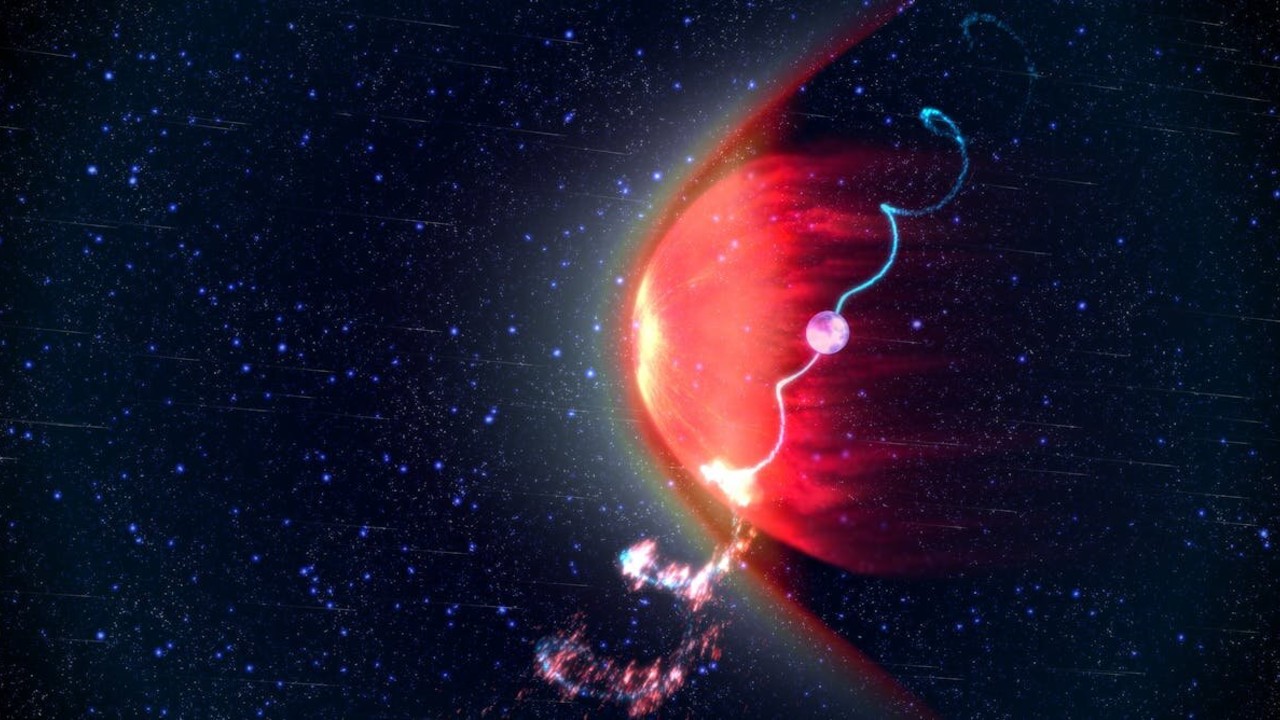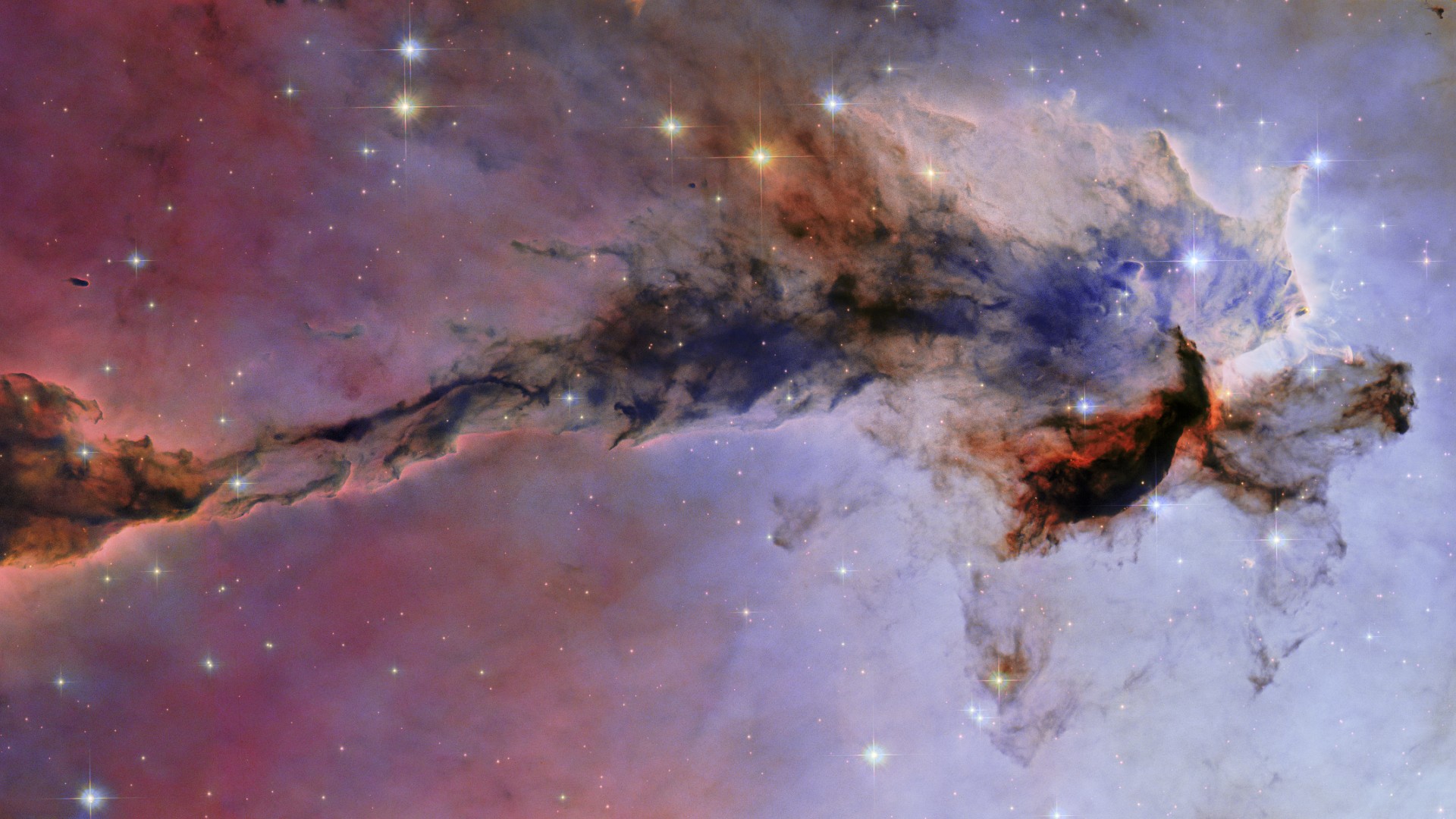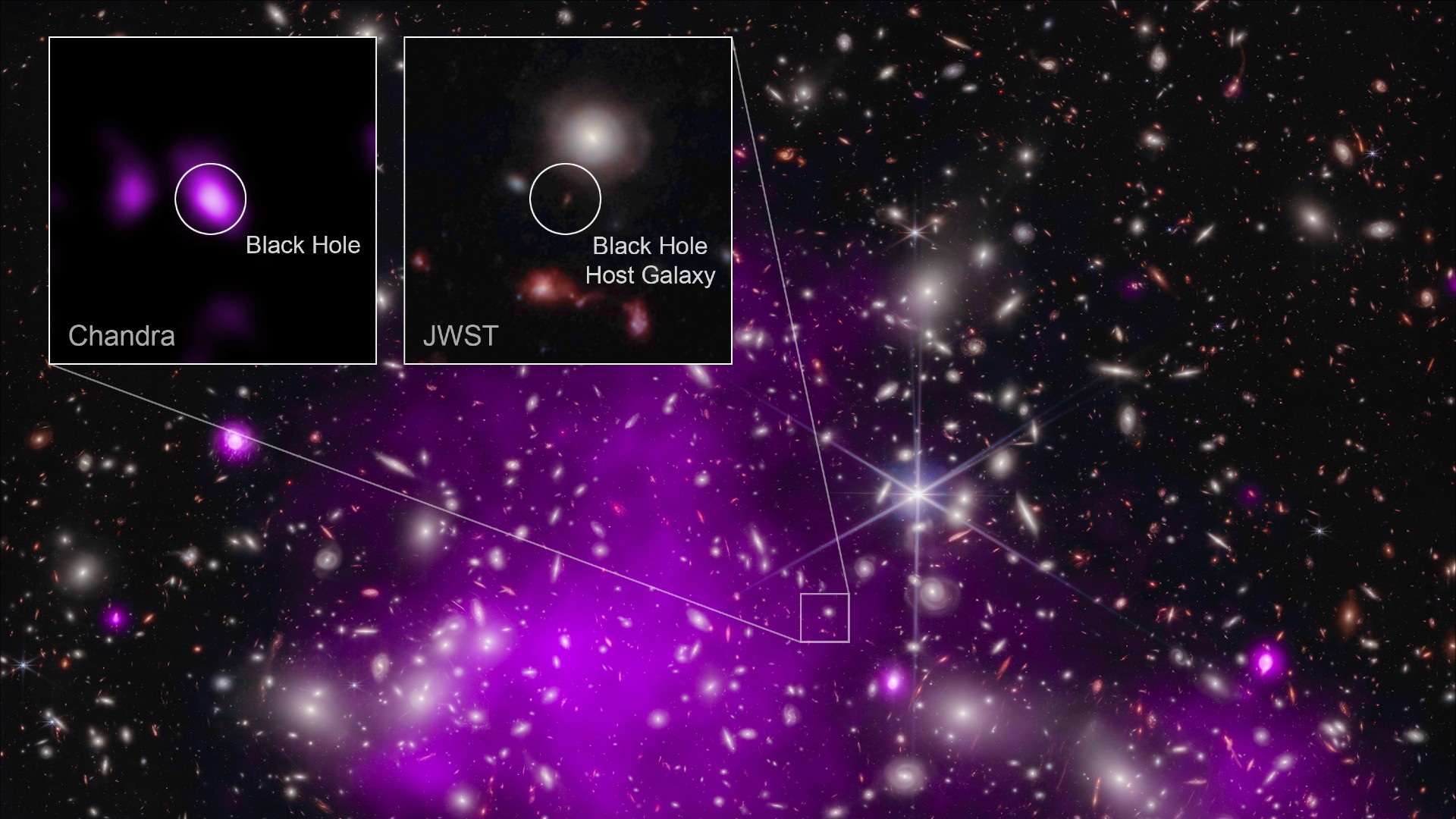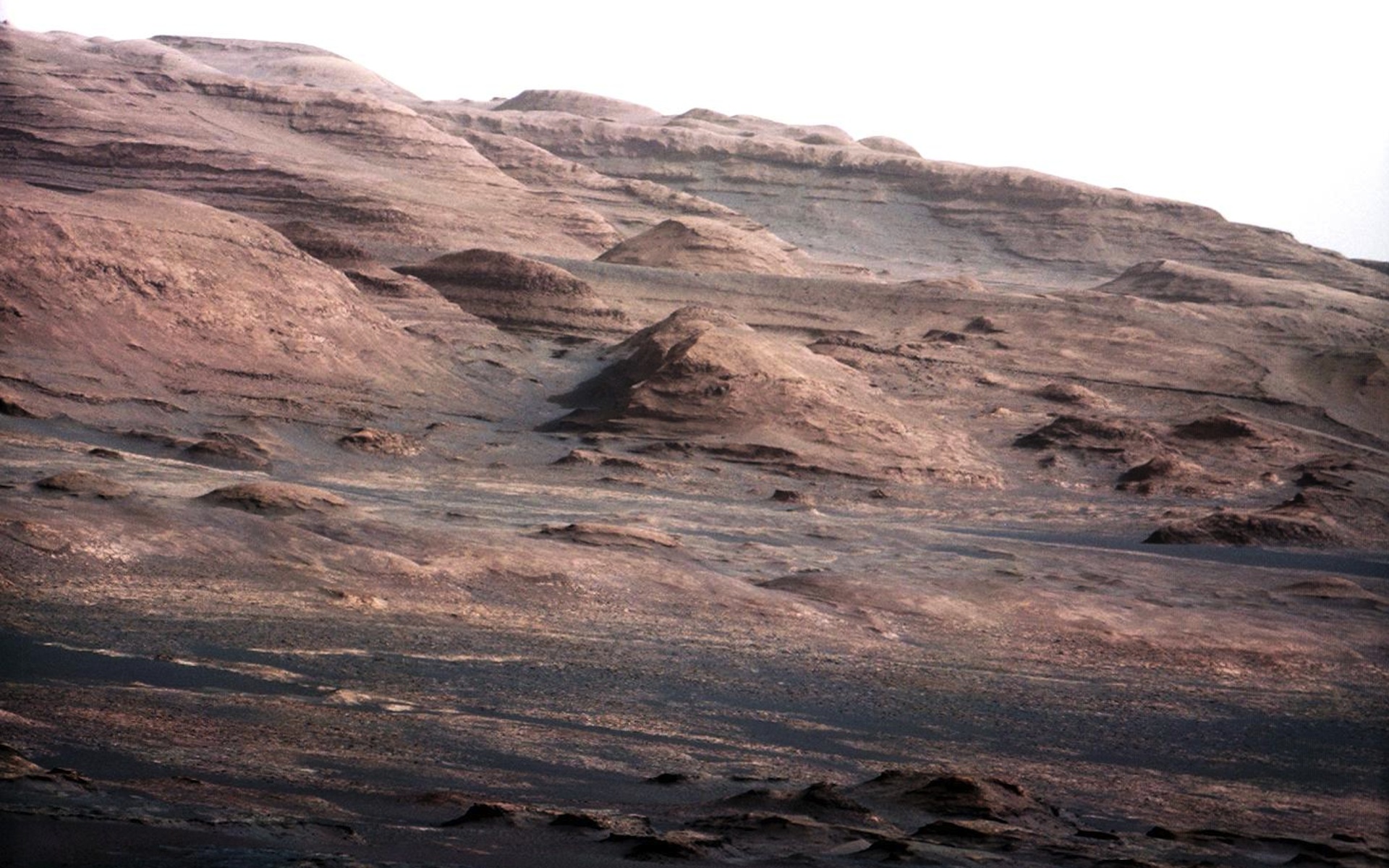Space Image of the Day Gallery (May 2018)
Getting Ready for a Spacewalk
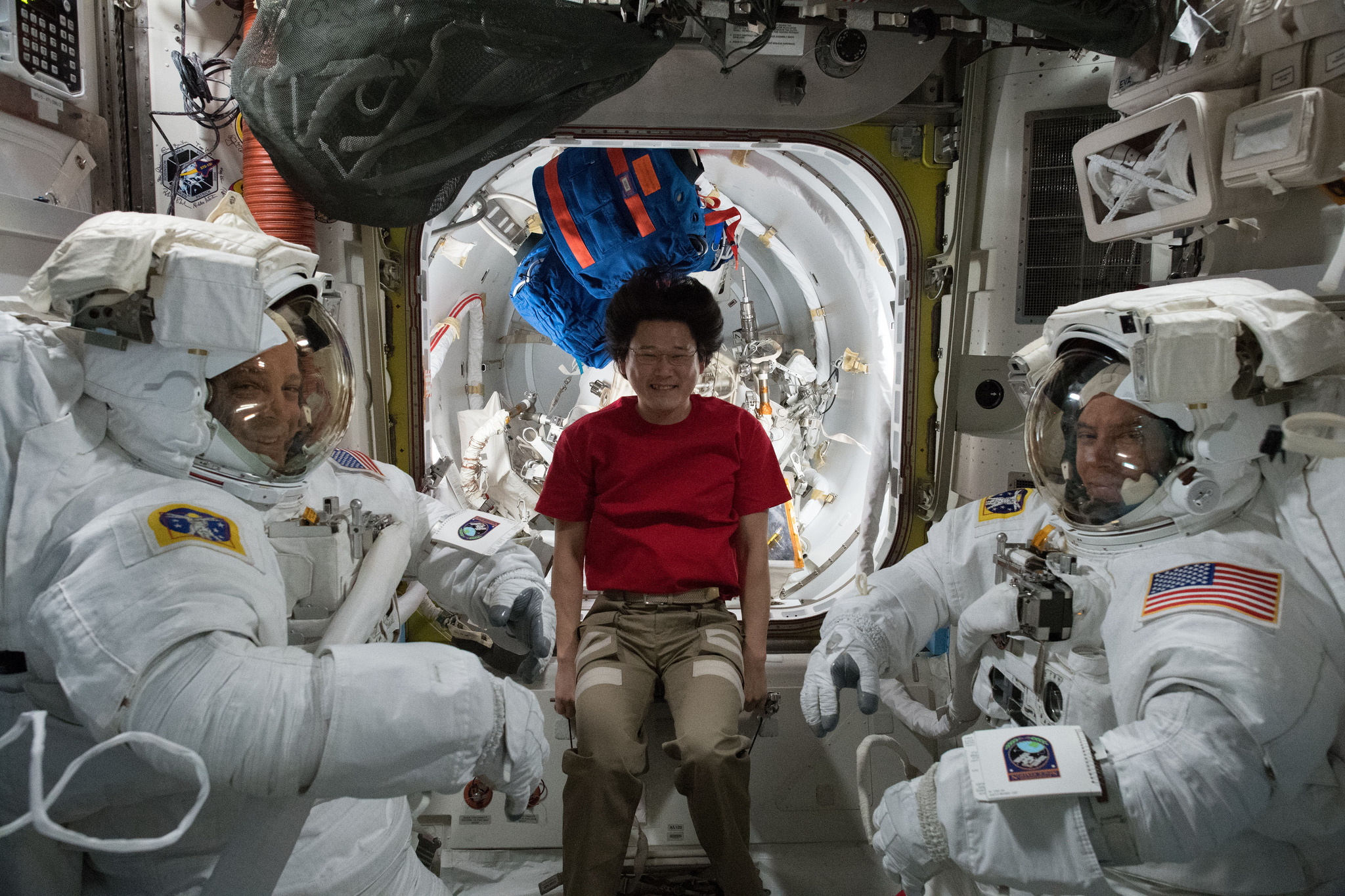
Wednesday, May 16, 2018: NASA astronauts Ricky Arnold (left) and Drew Feustel (right) try on their spacesuits for a fit check ahead of today's spacewalk at the International Space Station. Norishige Kanai, an astronaut with the Japan Aerospace Exploration Agency, assisted them during the fitting on May 8 and helped them out again today when they were suiting up for the planned 6.5-hour spacewalk. — Hanneke Weitering
Green Lights Surround Bangkok at Night
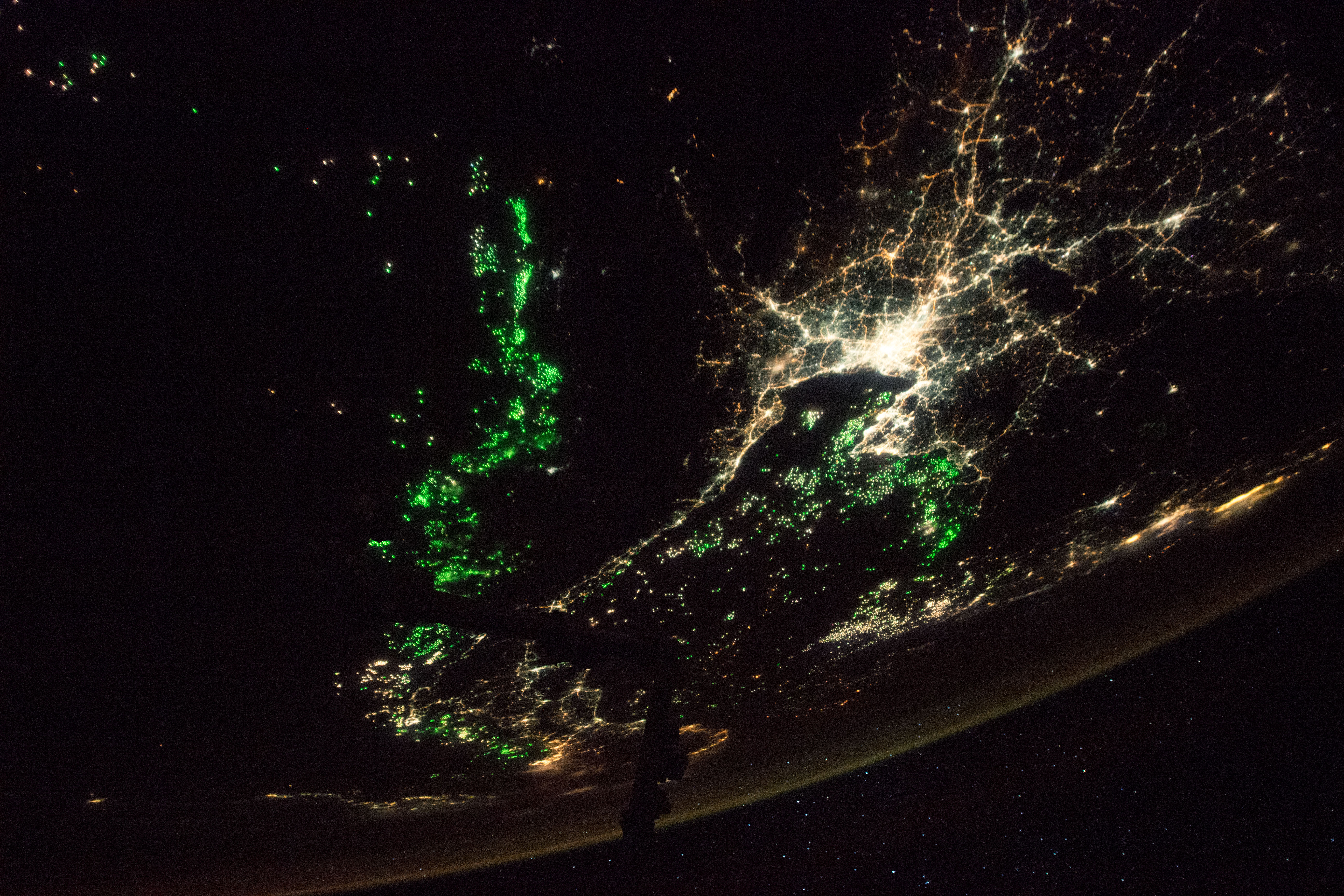
Thursday, May 17, 2018: As with most big cities seen from the International Space Station by night, the streets of Bangkok glow with bright yellow lights, revealing details about the city's structure and populations. But perhaps even more striking are the enormous clusters of green lights gleam in the surrounding waters. These lights come from hundreds of fishing boats in the Andaman Sea and the Gulf of Thailand, as fishermen use these green lights to attract plankton and fish. — Hanneke Weitering
An Out-of-This-World Selfie
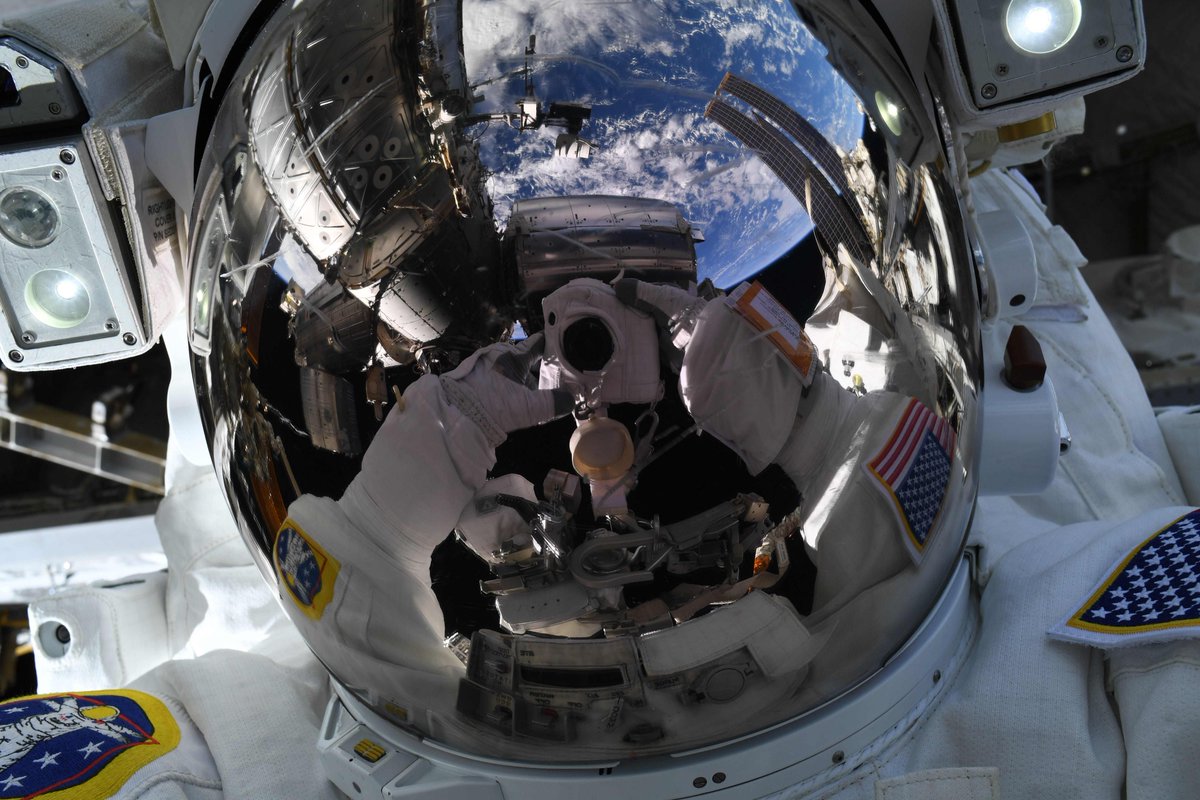
Friday, May 18, 2018: NASA astronaut Ricky Arnold takes a selfie 250 miles (400 kilometers) above the Earth during a spacewalk on Wednesday (May 16). "An amazing view of our one and only planet," Arnold tweeted. He and NASA astronaut Drew Feustel spent 6 hours and 31 minutes doing maintenance and installing some new hardware outside the International Space Station. — Hanneke Weitering
Conjunction of the Moon and Venus
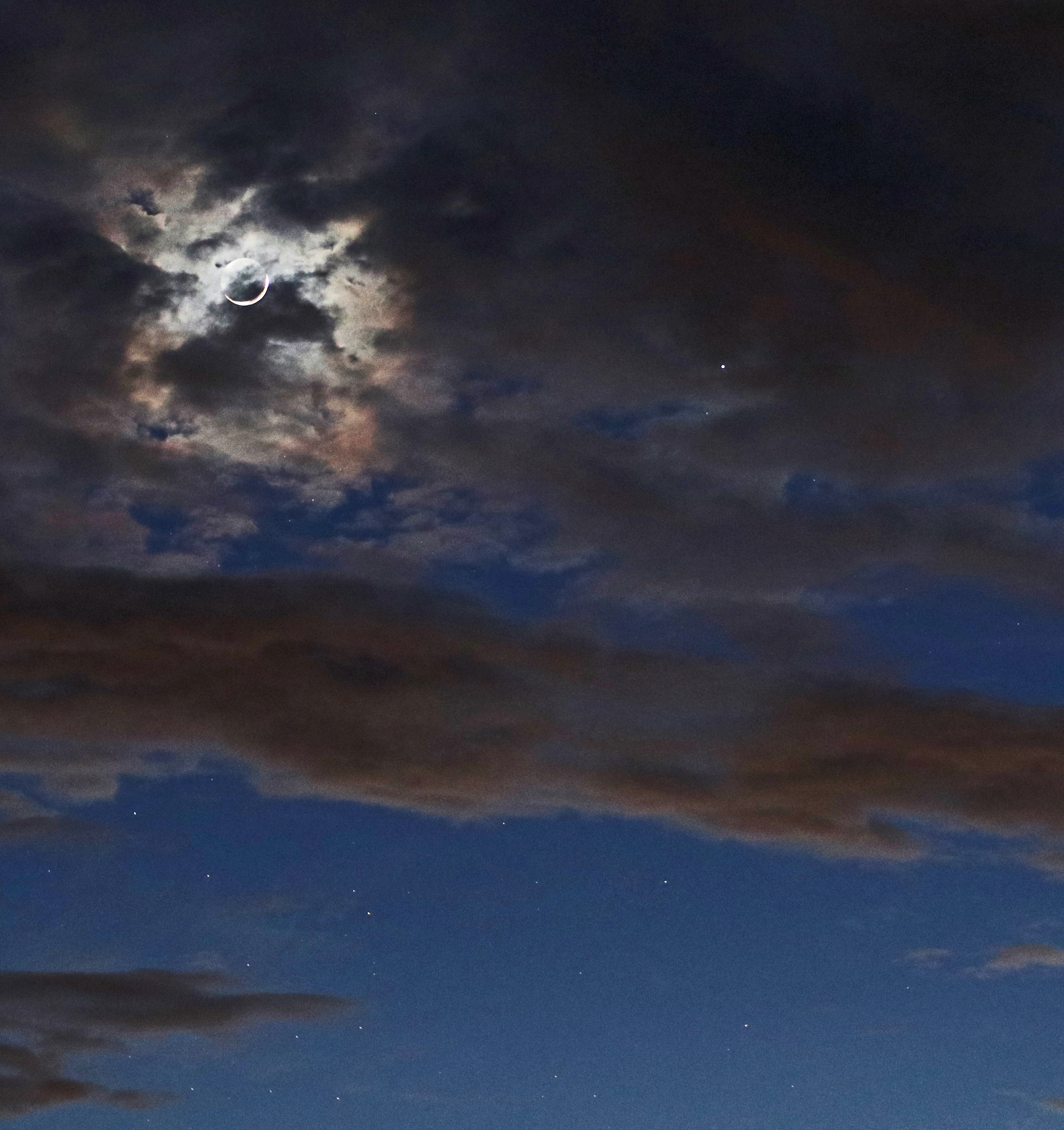
Monday, May 21, 2018: Two days after the new moon of May, a thin sliver of the waning crescent moon joined the bright planet Venus in the evening sky. Astrophotographer Victor Rogus captured this photo of their conjunction from Arcadia, Florida Thursday (May 17) night as the moon passed about 6 degrees south of Venus. "The pair struggled for my attention through mostly cloudy Florida skies," Rogus said. "Still, a very beautiful sight in the west as the sky darkened." — Hanneke Weitering
Antares Pierces the Clouds
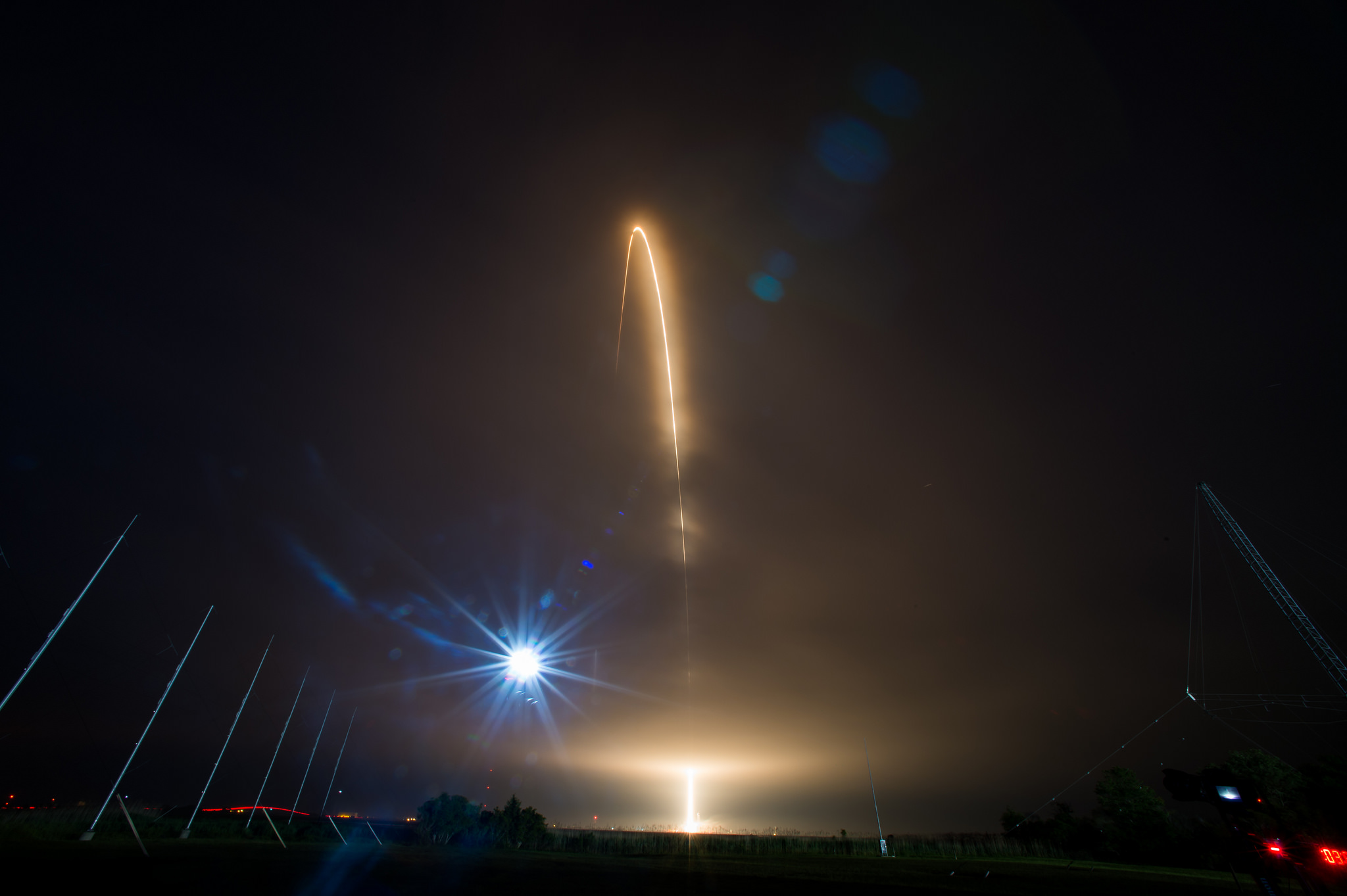
Tuesday, May 22, 2018: A trail of flames lights up the predawn sky as Orbital ATK's Antares rocket lifts off from Wallops Island, Virginia on a cargo delivery mission to the International Space Station early Monday morning. This long-exposure image shows the rocket's trajectory as it pierced through a layer of clouds and soared to space. The rocket delivered into orbit a Cygnus cargo vessel as packed with more than 3 tons of crew supplies and science experiments. It will arrive at the space station on Thursday (May 24). — Hanneke Weitering
A Unique View of Jupiter
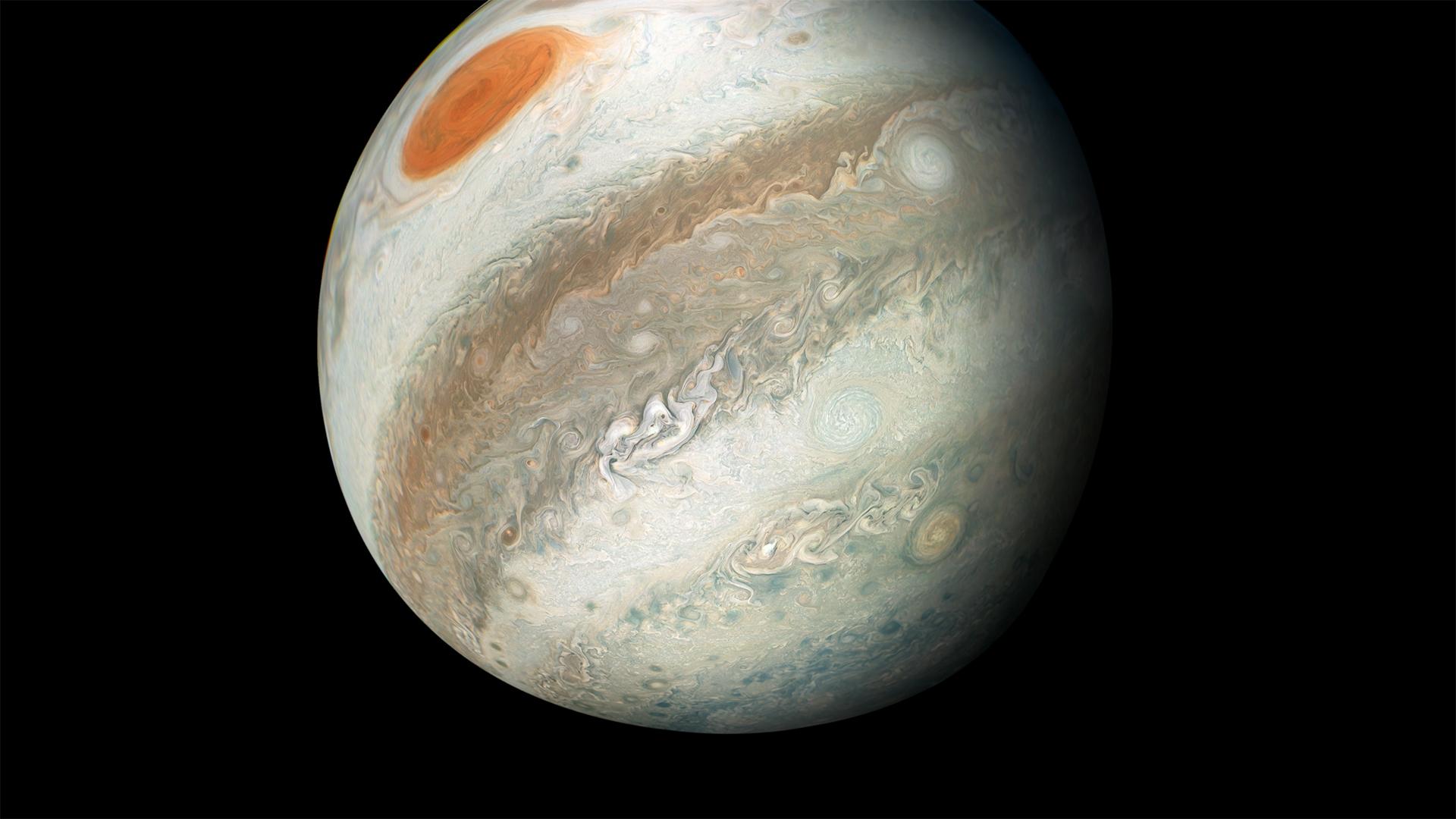
Wednesday, May 23, 2018: Jupiter looks a bit peculiar in this recent image taken by NASA's Juno spacecraft. Juno was looking at Jupiter's southern hemisphere after it completed its 12th close flyby of the planet on April 1. The unique angle of the image creates the illusion that the Great Red Spot, an enormous storm that swirls in Jupiter's southern hemisphere, is located in the northern hemisphere. — Hanneke Weitering
Cygnus Heads to the Space Station

Friday, May 25, 2018: NASA astronaut Ricky Arnold spotted a space station-bound Cygnus cargo vessel passing over a crystal-blue atoll in Indonesia before it arrived at the orbiting lab on Thursday (May 24). These ring-shaped structures in the ocean are made entirely of coral. — Hanneke Weitering
Get the Space.com Newsletter
Breaking space news, the latest updates on rocket launches, skywatching events and more!
Mariana Islands from Space
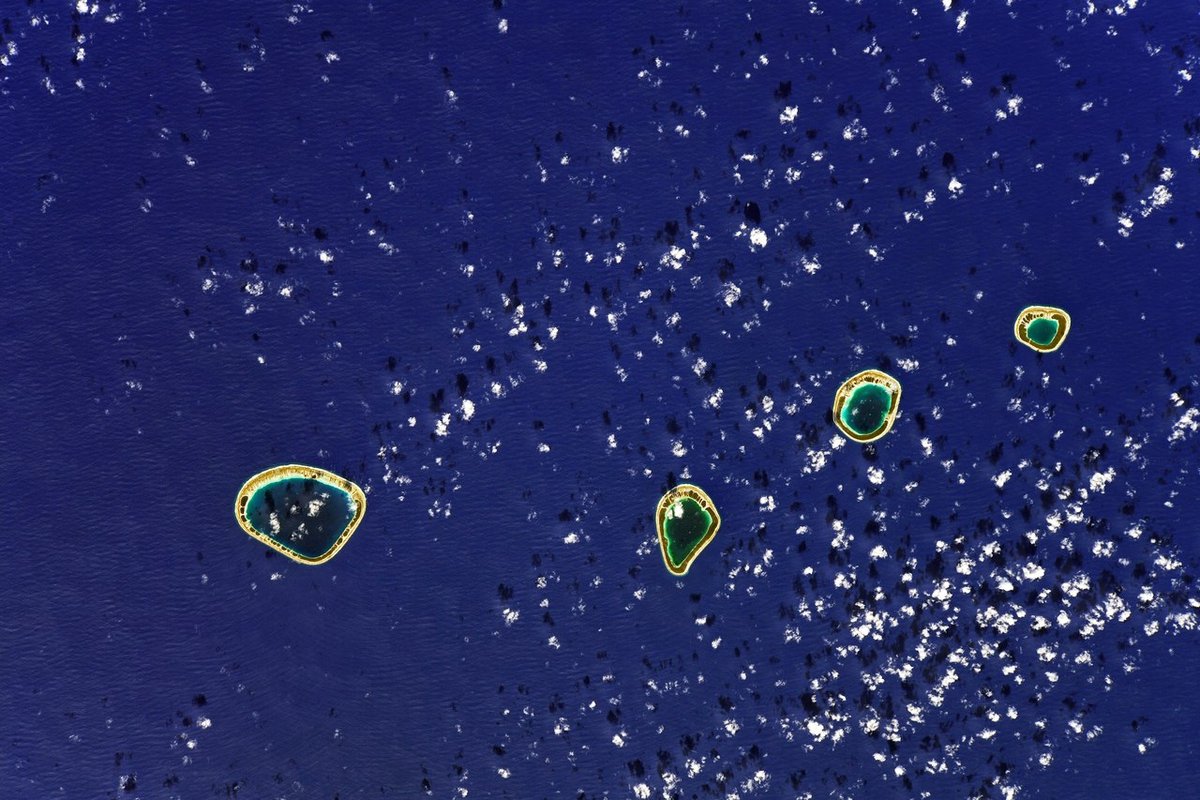
Tuesday, May 29, 2018: From the International Space Station, Russian cosmonaut Anton Shkaplerov spotted the Mariana Islands in the Pacific Ocean, posting his view to Twitter Tuesday (May 29). The archipelago, which is home to fifteen volcanic mountains, is clearly visible against the vibrant blue background of the western Pacific Ocean. These islands line the eastern limit of the Philippine Sea. — Chelsea Gohd
Hubble Captures Stunning Galaxy Cluster
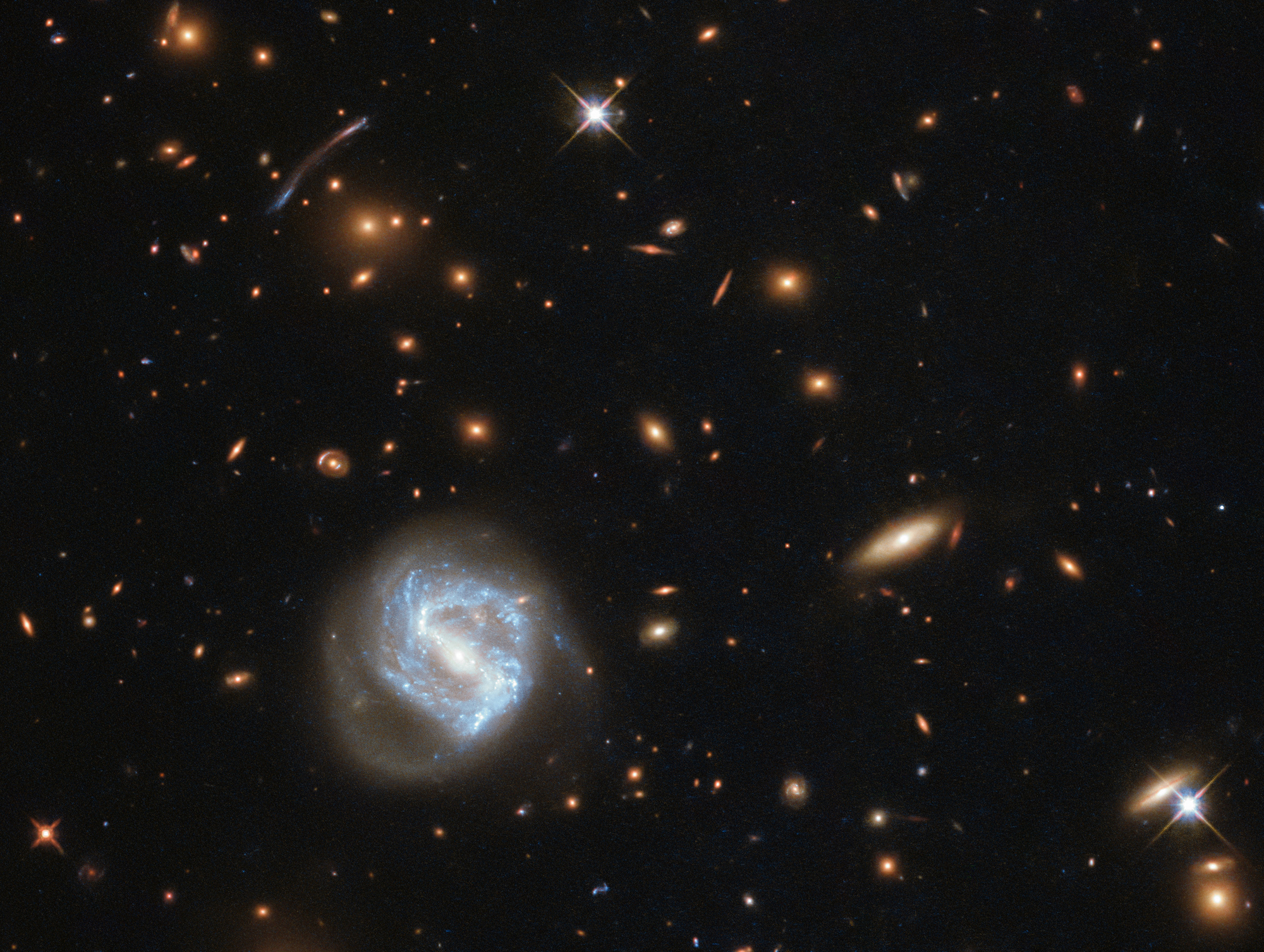
Wednesday, May 30, 2018: Behind the blue-hued swirling galaxy that seems to sparkle in the lower left of this image, a galaxy cluster can be seen. This image, taken by the Hubble Space Telescope, shows the galaxy cluster known as SDSS J0333+0651. Galaxy clusters, and images like this, can help astronomers to better understand the distant/early universe. — Chelsea Gohd
Curiosity Rover Photographs a Hole it Drilled

Thursday, May 31, 2018: NASA's Curiosity Rover used it's Mast Camera (Mastcam) to photograph the product of its new drilling technique. Seen here on Sol 2057, or May 20, in a target known as "Duluth," Curiosity used its new technique to drill a 2-inch-deep hole in the Martian surface. The image has been white balanced and contrast-enhanced to make the hole clearer. Read our full story of Curiosity's first Mars drilling since 2016! — Chelsea Gohd
Join our Space Forums to keep talking space on the latest missions, night sky and more! And if you have a news tip, correction or comment, let us know at: community@space.com.

Space.com is the premier source of space exploration, innovation and astronomy news, chronicling (and celebrating) humanity's ongoing expansion across the final frontier. Originally founded in 1999, Space.com is, and always has been, the passion of writers and editors who are space fans and also trained journalists. Our current news team consists of Editor-in-Chief Tariq Malik; Editor Hanneke Weitering, Senior Space Writer Mike Wall; Senior Writer Meghan Bartels; Senior Writer Chelsea Gohd, Senior Writer Tereza Pultarova and Staff Writer Alexander Cox, focusing on e-commerce. Senior Producer Steve Spaleta oversees our space videos, with Diana Whitcroft as our Social Media Editor.
